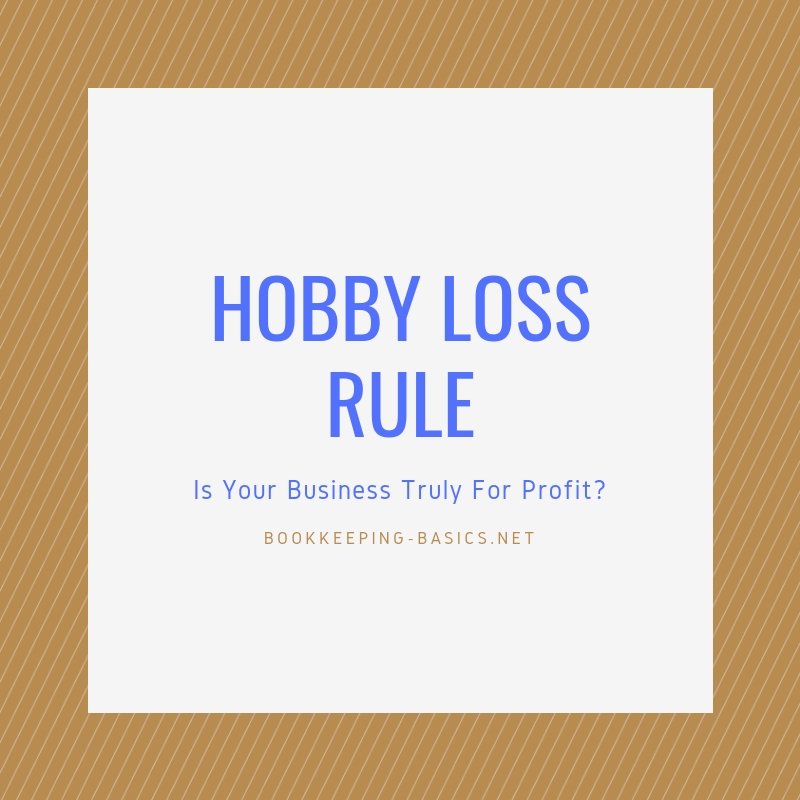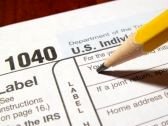- Home
- Bookkeeping Articles
- Hobby Loss Rule
Hobby Loss Rule
How To Know If Your Business Is Truly For Profit
Learn about the hobby loss rule and whether or not your hobby is for profit or in danger of an audit with this IRS.
The Internal Revenue Service reminds taxpayers to follow appropriate guidelines when determining whether an activity is engaged in for profit, such as a business or investment activity, or is engaged in as a hobby.
Internal Revenue Code 183 (Activities Not Engaged in for Profit) limits deductions that can be claimed when an activity is not engaged in for profit. IRC 183 is sometimes referred to as the hobby loss rule.
Is Your Hobby a For-Profit Endeavor?
Taxpayers may need a clearer understanding of what constitutes an activity engaged in for profit and the tax implications of incorrectly treating hobby activities as activities engaged in for profit. This bookkeeping articles educational fact sheet provides information for determining if an activity qualifies as an activity engaged in for profit and what limitations apply if the activity was not engaged in for profit.
What is the hobby loss rule?
In general, taxpayers may deduct ordinary and necessary expenses for conducting a trade or business or for the production of income. Trade or business structure activities and activities engaged in for the production of income are activities engaged in for profit.
The following factors, although not all inclusive, may help you to determine whether your activity is an activity engaged in for profit or a hobby:
- Does the time and effort put into the activity indicate an intention to make a profit?
- Do you depend on income from the activity?
- If there are losses, are they due to circumstances beyond your control or did they occur in the start-up phase of the business process management?
- Have you changed methods of operation to improve profitability?
- Do you have the knowledge needed to carry on the activity as a successful business?
- Have you made a profit in similar activities in the past?
- Does the activity make a profit in some years?
- Do you expect to make a profit in the future from the appreciation of assets used in the activity?
An activity is presumed for profit if it makes a profit in at least three of the last five tax years, including the current year (or at least two of the last seven years for activities that consist primarily of breeding, showing, training or racing horses).
If an activity is not for profit, losses from that activity may not be used to offset other income. An activity produces a loss when related income tax deduction expenses exceed income. The limit on not-for-profit losses applies to individuals, partnerships, estates, trusts, and S corporations. It does not apply to corporations other than S corporations.
Are you following the hobby loss rule?
If your activity is not carried on for profit, allowable deductions cannot exceed the gross receipts for the activity. This means that if you engage in a hobby rather than a business, the deductions you can claim are limited to the amount of income you generate from that activity. In other words, you cannot deduct more expenses than you earn.
When it comes to hobby deductions, they are claimed as itemized deductions on Schedule A of Form 1040. However, these deductions must be taken in a specific order and are subject to certain limitations within each category.
The first category allows you to claim deductions for certain personal expenses, such as home mortgage interest and taxes, in full. These deductions are not restricted by the amount of income you generate from the hobby activity. So, if you have any eligible personal expenses related to your hobby, you can deduct them without limitation.
The second category includes deductions that do not impact the basis of property, such as advertising costs, insurance premiums, and wages paid to employees. These deductions can be taken only to the extent that your gross income from the hobby activity exceeds the deductions you claimed in the first category. In other words, you can deduct these expenses up to the amount of income you earned from your hobby.
The third and final category consists of deductions that reduce the basis of property, such as depreciation and amortization. These deductions are taken last and are subject to the same limitation as the second category. You can only claim these deductions if your gross income from the hobby activity exceeds the deductions you claimed in both the first and second categories.
It's important to note that the rules regarding hobby deductions are designed to prevent individuals from claiming excessive deductions for activities that are not pursued for profit. The Internal Revenue Service (IRS) closely scrutinizes hobby activities to ensure that taxpayers are not using them as a means to generate excessive deductions and reduce their tax liability. Therefore, it's essential to accurately report your income and expenses and consult with a tax professional for guidance specific to your situation.
More Bookkeeping Articles
- Bookkeeping Company
- Bookkeeping Office Productivity
- Bookkeeping Salaries
- Bookkeeping Tips
- Business Structure
- Deductible Expenses
- Economic Stimulus Payments
- Estimated Tax Payment
- Hobby Loss Rule
- Home Based Bookkeeping Business
- Reduce Office Clutter
- Standard Mileage Rate
- Starting Own Business
- Tax Relief
Please subscribe to my monthly newsletter, Bookkeeping Basics E-zine. It tells you every month about the new information that I have added, including some great tips and advice from myself and other Bookkeeping Basics readers.
Like Bookkeeping-Basics.net?
- Home
- Bookkeeping Articles
- Hobby Loss Rule

















New! Comments
Have your say about what you just read! Leave me a comment in the box below.